ГДЗ Англійська мова 6 клас. Підручник [Калініна Л.В., Самойлюкевич І.В.] 2014
Unit Four: Travelling
p. 99. We go to the village by car.
We usually travel to the city centre by bus. We go to the seaside by plane.
I go to visit my cousins by train.
I go to see my friend by bike.
I go to school on foot.
p. 100, ex. VI.
Study these words and say: how you can amuse yourself in town;
I can visit an amusement park. Here I can swing, go on the roller coaster, do merry- go-round.
what route you can choose for your weekend trip out of town;
I can go to the city centre or to my favourite park.
what you can do out of town.
I can swim, put up a tent near the river, and cook on fire.
p. 101, ex. 2.
1. What does it look like?
2. How can we get there?
3. What can we do in that place?
We can see a lot of exotic plants there. We can get there by trolleybus. It would be fine to have a rest there. (The Botanical Gardens)
p. 103, ex. 2.
1. What are the classmates going to do on Saturday? — The classmates want to take a nice weekend trip.
2. What options are the children discussing? — They are discussing the route: to stay in town or to go out of town.
3. What pluses of staying in town does one of the friends mention? — They can visit an amusement park.
4. What does the other friend like to do out of town? — They can go to a pond or a stream, put up a tent there, make a fire and cook fish soup on it.
5. Ho w are they going to make a decision? — They are going to talk to their classmates.
p. 103, ex. 3.
1. We need to plan our root.
2. Let's go to an amusement park.
3. We can swing, do merry-go-round, go on the roller-coaster or a Ferris wheel and whatnot.
4. Why don ’t we go to a pond or a stream?
5. We can't lose the chance to enjoy Indian summer.
6. It's a pity to stay in town in such wonderful weather.
p. 103—104, ex. VIb.
A: Isn’t it wonderful to go on a trip on Sunday?
B. Terrific! Where shall we go?
A: Makes no difference to me as long as we get together.
B: We need to plan our route ahead.
A: What are the options?
B: I think there are two of them: to stay in town or to go out of town.
A: Let’s talk to our friends.
B: Agreed.
Speak about the Ukrainian weekend traditions.
All Ukrainian families have their weekend traditions. Some people enjoy staying at home and are busy with their hobbies. They usually do something together and have a good time. But usually the Ukrainians are active and energetic. So they like spending time outdoors. They play team games or go to the forest to enjoy wonderful nature. Families with kids go to an amusement park. There one can choose the attractions to all tastes.
p. 104, ex. VII.
Our central park is located in the city centre.
It is easy to reach by trolleybus.
It is just a few minutes walking from the trolleybus stop.
You can find there lots of attractions.
The route will be marked by special signs.
p. 105, ex. 1.
I am a nature lover, that’s why I enjoy travelling to the forest.
I am a good swimmer, that’s why I like going to the seaside.
I am fond of history so I prefer visiting museums.
I am a sports person so I enjoy playing tea games at the stadium I am good at taking pictures so I like visiting places of interest and taking photos.
p. 106, ex. 1.
1. What waterways you can see;
2. What towns you have been to;
3. Where you would like to go.
I can see The Dnieper, the Danube, and the Tisa.
I have been to Kyiv, Lviv, Uzhgorod.
I would like to visit Uman.
p. 107, ex. 1.
a) Where they can go; American children can visit Disneyland or Disney world.
What they can see:
They can see the Mickey Mouse Show. They can go for a ride with Donald Duck. They enjoy visiting Adventure land and seeing the world of Snow White and Seven Dwarfs
c) What they can do:
They can go on a Ferris wheel.
They can have a snack in McDonalds.
They can watch Mickey Mouse parade etc.
p. 108, ex. 2.
American children often spend their weekends in Disneyland or Disney world. These places are the most popular with children.
In Disneyland they can see Disney cartoons. Besides, they can take part in Mickey Mouse parade or go on a Ferris wheel. Many children prefer going on the roller-coaster because it’s exciting. There are also fond of attractions, that’s why they do merry-go- round. At lunch time parents and children visit McDonalds. You can stay there all day long. It’s fun to get together.
p. 108, ex. 3.
At home.
What do you like doing on holiday?
When do you usually do it?
Where do you usually go?
How do you get there?
Why do you like it?
p. 109, ex. 1.
1. What happened lit town one Saturday morning? — The funfair came.
2. What attractions were there? — The roller-coaster, roundabout, merry-go- rounds and other attractions.
3. Where did Val's friends so? — They went to the funfair.
p. 110, ex. 2.
1. The funfair came to town.
2. The children heard the news on Saturday morning,
3. In the evening the place was noisy.
4. The children came there to ride on the roundabout, and to shoot with a real gun at the shooting booths.
5. All the attractions cost a lot of money.
6. Val went to the fair.
p. 110, ex. 3.
We have a good family tradition. We go to the central park to celebrate the end of the school year. I am usually full of excitement because I look forward to visiting my favourite attractions.
p. 111, ex. 2.
A: Have you heard about a new circus performance.
B: It’s never! Are you going to visit it?
A: I'm full of excitement
B: Me, too. I look forward to watching it.
A: Let’s go on Saturday.
B: We could to buy tickets just now.
A: That would be smashing to visit circus. B: Come on, then!
p. 112, ex. VIII.
Dear Diary.
For days I was waiting for visiting the zoo. When the time came, I was in excitement because my friend told me that I can see a little baby elephant. The whole place was full of noise. In every corner you could hear loud voices of animals. A baby elephant looked cute and funny. I forgot about everything.
p. 114, ex. 1b.
Welcome to Ukraine
Lake Svytyaz
The Dnipro
Eastern Europe
Kyiv
The Danube
The Crimean Mountains
The Black Sea
The Sea of Azov
Lviv
The Carpathians
Kharkiv
Central Ukraine
p. 114, ex. 2b.
The boy and his mother are at the airport. Their flight leaves at 10.30.
The girl and her parents go hiking.
The family is going to stay at the hotel at the seaside.
The children bought a lot of souvenirs for their family and friends.
p. 115, ex. 1a.
Our friends from Kyiv visit us every summer at our invitation. We always look forward to seeing him and plan our leisure carefully, how you welcome guests;
When we receive guests we try to give them a hearty welcome. We cook some local dishes and take care of a cultural programme. We draw funny posters and give our guests some small presents.
p. 116.
At home. Our international friends visit us every year at our invitation. We always look forward to seeing him and plan our programme carefully. We have a welcome party. We cook some local dishes and take care of a cultural programme. We draw funny posters and give our guests some small presents. Besides we set up a display of Ukrainian art. This usually works well.
p. 116, ex. 3.
to have a welcome party
to cook some local dishes
to take care of a cultural programme
to make a poster
to give some small presents
p. 118, ex. 2.
1. The children invited their international guests to come to Ukraine. — true
2. The children know much about Ukrainian traditions. — true
3. Ann is going to set up a display of Ukrainian art. — true
4. Steve likes the idea of organizing a cultural programme. — true
5. He is going to do everything by himself. — false
6. Ann remembers about presents — true p. 118, ex. 3. The children are going to give a hearty welcome, in the best Ukrainian traditions of hospitality.
The children are going to greet the guests with bread and salt.
The children are going to have a welcome party.
The children are going to cook local dishes. The children are going to bring small gifts.
p. 118, ex. VIa.
A: Have you heard the news today?
B: Do you mean the news about our guests from Scotland?
A: Exactly. We must plan carefully how to welcome them.
B: Sure. It should be hearty welcomes in the best Ukrainian traditions .How are we going to greet them?
A: With bread and salt, of course. We also can bread and salt, of course.
B: Good idea. Next let's have a welcome party.
A: Such as?
B: Something like a short concert, with folk songs, folk dance and music. And please, don’t forget to set up a display of Ukrainian art. A: No problem. My classmates and I have plenty of vyshyvankas, vytynankas, pysankas and woodwork.
B: Splendid.
p. 119, ex. VII.
Things to do
To plan carefully how to welcome guests.
To put on national costumes.
To take care of a cultural programme.
To have plenty of interesting things.
To set up a display of Ukrainian art.
To make posters.
To choose local dishes.
«Step out of your cave and look around»
p. 120.
Read and learn how to express admiration for great explorers. Look at the pictures and fill in the mini-dialogues.
a) — Do you know Captain Cook?
— Yes, of course I do. He is the most famous explorer I know.
b) — James Cook discovered Australia.
— Wow! Isn't it remarkable?
c) — What do you think of Christopher Columbus?
— I can't help admiring his great discovery.
d) — Captain Cook made three journeys by sea to the Pacific Ocean.
— How admirable!
p. 121, ex. 1.
a) Where was James Cook from? — Great Britain.
b) What can the seaman who has travelled round-the-world wear? — An earring.
c) What do people call an experienced traveler? — A sea-wolf.
d) What English writer wrote about sea travel? — Rudyard Kipling “Captains Courageous"
p. 122, ex. 1.
At home. Captain Cook is one of the most famous explorers who discovered Australia. He made three journeys by sea to the Pacific Ocean. He was a real sea-wolf. I can't help admiring his great discovery.
p. 122, ex. 2.
a) What happened to the boy at sea? — He nearly got drowned in the ocean.
b) Who saved him? — A seaman.
c) What did the man look like? — He was dressed in a blue jersey. In his ears he had little gold earrings.
p. 122, ex. 2.
Miss Joy's Story We, the English, live on the islands and always have it round the comer. We have a lot of famous explorers. One of them is James Cook. He was a real sea-wolf. In his crew there were several sailors who wore earrings because they travelled round-the-world. You can read about James Cook in the book «Captains Courageous» by Rudyard Kipling. This book is popular with English children.
p. 123, ex. 2.
1. Harvey nearly got drowned in the ocean.
2. They live near London.
3. It took nearly two hours to get there.
4. She told the children not to go near the canal.
5. Michelle is nearly twelve.
p. 123, ex. VI.
1) 1. Once I was travelling by ship.
2. Unfortunately, I felt seasick.
3. I was standing on the deck.
4. The sea was stormy.
5. Suddenly I fell down into the sea.
6. When I opened my eyes I lay on the pile of fish.
7. The seaman had earrings.
8. He explained to me that he caught the boy like a big fish.
p. 124, ex. 2.
A. Do you know Christopher Columbus?
B: Yes, of course I do. He discovered America.
A: Wow, isn’t it remarkable!
B: What do you think of him?
A: I can’t help admiring his courage.
B; Christopher Columbus made a journey by sea with his crew.
A: How admirable!
p. 124, ex. VIII.
How to do it? — Prepare the ship, the food, he water.
How long you need? — One month.
When to go? — In April.
Where to go? — To Australia.
p. 125, ex. I.
James Cook explored the seaways and coasts of Canada, conducted scientific expeditions from Antarctic to Arctic, and travelled from the coasts of North America to Australia and New Zealand. He made three journeys by sea to the Pacific ocean and became the first European to arrive at the east coast of Australia. His ship — the “Endeavour’’ — first found New Zealand and then crossed the Tasman Sea to reach the smallest continent in 1770.
p. 125, ex. II.
1. Let's go on the roller-coaster.
2. We can put up a tent near a river.
3. We are all going on a trip on Saturday.
4. I prefer to stay in town.
5. Martha and Phil coming to Ukraine at our invitation.
6. We can put on national Ukrainian costumes.
p. 126, ex. 1.
1. When did Robert Scott travel? — B. To the Antarctic.
2. What did he reach in 1910? — C. The South Pole.
3. What did he see when he got there? — B. A tent.
4. What country was his competitor from? —A. Norway.
5. What is not true about Robert Scott? — B. He won the race.
6. What made his journey especially hard? — A. The weather.
p. 126, ex. 111.
1. Do you know any great travellers? — c) Yes, of course, I do.
2. What do you think of a round-the-world trip? — a)Wow!
3. James Cook discovered Australia. — e) I can’t help admiring his great discovery.
4. Christopher Columbus is the most famous explorer I know. — f) No wonder — he discovered America.
5. Captain Cook made three journeys by sea to the Pacific. — b) How admirable!
6. Isn’t it remarkable that your brother wants to become a seaman? — d) And he will. He is so courageous!
p. 127, ex. VI.
Our life would be dull without travelling. It broadens our horizon. We see new places, meet new friends, and enrich your knowledge. If you are a nature lover, you can go backpacking. If you are interested in history you can visit mu-, seums. Our world is wonderful. Just go out and you see a lot of interesting things.
 ГДЗ Англійська мова 7 клас Калініна Самойлюкевич 2014 Генеза Підручник
ГДЗ Англійська мова 7 клас Калініна Самойлюкевич 2014 Генеза Підручник
 Якщо помітили в тексті помилку, виділіть її та натисніть Ctrl + Enter
Якщо помітили в тексті помилку, виділіть її та натисніть Ctrl + Enter 02.02.2021,
02.02.2021,
 1 603,
1 603,
 0
0
 Назад
Назад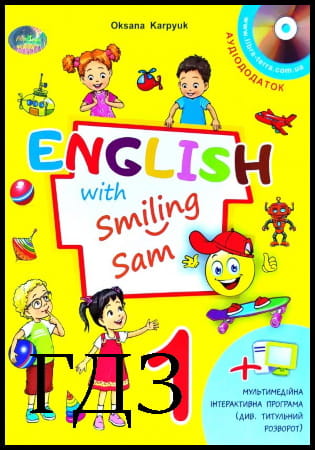
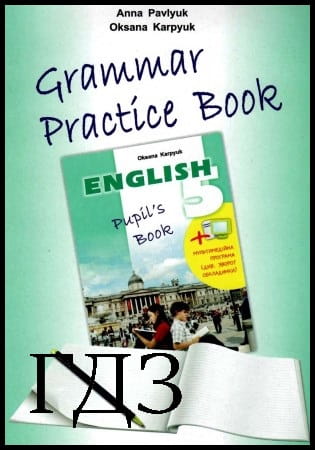
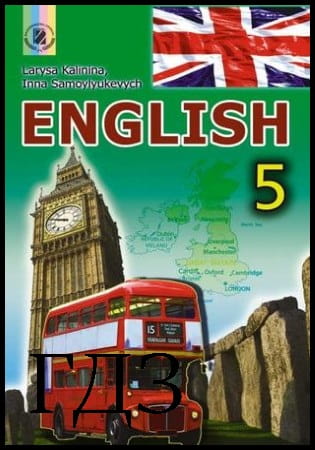
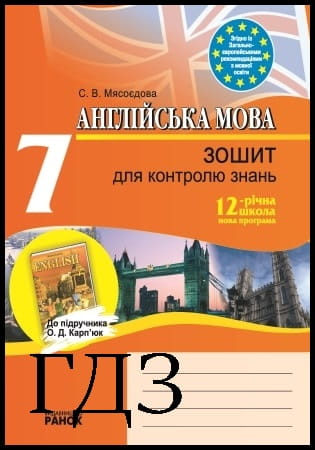
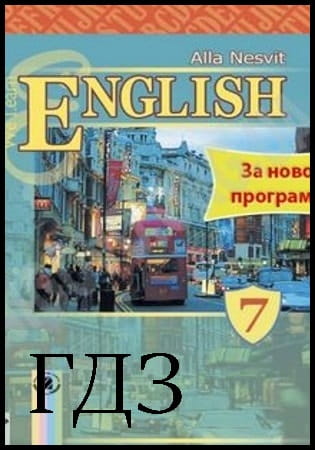
![ГДЗ Природознавство 5 клас. Підручник [Ярошенко О.Г., Бойко В.М.] 2018 ГДЗ Природознавство 5 клас. Підручник [Ярошенко О.Г., Бойко В.М.] 2018](/uploads/posts/2019-04/1555779316_5_p_y_u2018.jpg)
![ГДЗ Основи правознавства 9 клас. Підручник [Наровлянський О. Д.] 2017 ГДЗ Основи правознавства 9 клас. Підручник [Наровлянський О. Д.] 2017](/uploads/posts/2019-02/1550928122_9k_p_n_2017.jpg)
![ГДЗ Українська мова 8 клас. Підручник [Глазова О.П.] 2021 ГДЗ Українська мова 8 клас. Підручник [Глазова О.П.] 2021](/uploads/posts/2021-10/1633720388_8k_y_g_2021.jpg)
![ГДЗ Вступ до історії 5 клас. Підручник [Гісем О.В.] 2018 ГДЗ Вступ до історії 5 клас. Підручник [Гісем О.В.] 2018](/uploads/posts/2019-07/1564163269_5k_i_h_2018.jpg)